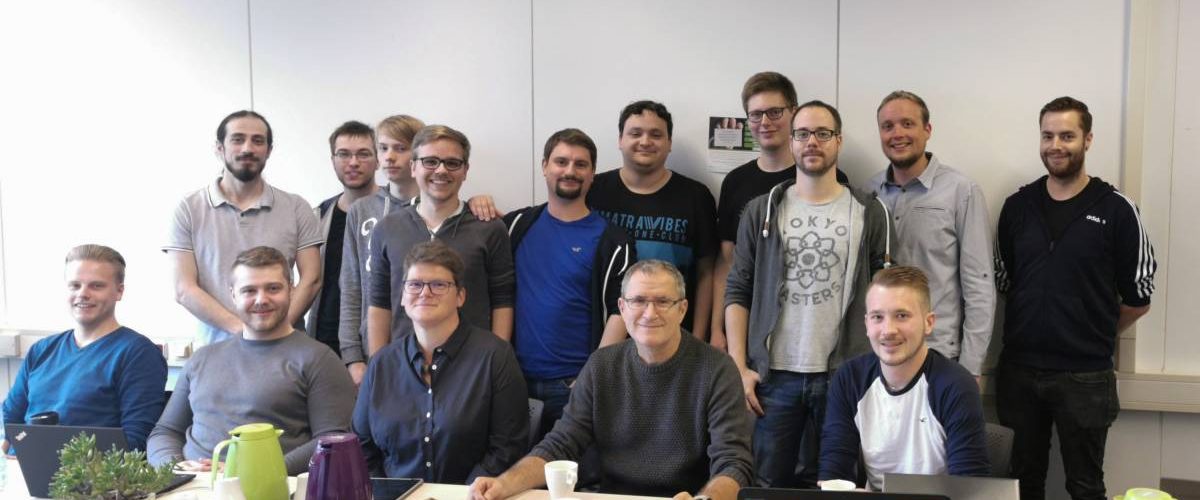The ROCIT project group has begun its work. In a one-day kick-off workshop, the 12 master’s students of Business Informatics met with Prof. Jorge Marx Gómez, Barbara Rapp, and Cedrik Theesen from the University of Oldenburg, along with representatives from the software company AMCON in Cloppenburg, for an initial planning session. “The first step is now to develop project goals and define milestones,” says Prof. Marx Gómez, head of the Business Informatics department VLBA, who is overseeing the project together with Barbara Rapp.
Presentation of expectations and group brainstorming
Besides the University of Oldenburg, which is leading the project under the supervision of research associate Barbara Rapp, the software company AMCON is also involved. “Improving real-time forecasts for public transport companies is a highly demanded topic that affects many of our customers in the bus industry,” says Sebastian Schnieder, master’s student and development manager at AMCON, who initiated the project and will also be involved in it. After deciding on the project group’s name (ROCIT stands for “Real-time forecasts Optimization Concerning timetable Information of public Transport”), representatives from the university, AMCON, and the students presented their expectations and discussed initial possible project goals. The project is planned for one year, and the results will be presented at the University of Oldenburg at the end of September 2020. “It is important to us that the students do not lose sight of the scientific approach and work result-oriented. How they ultimately achieve their goal is up to them,” says Rapp.
Collaboration at eye level
At AMCON, project manager Alex Mut and training manager Rolf Norrenbrock support the students. AMCON provides the students with real-time data from the bus company Breitenbach from the past two years, which can be used for the group’s research and studies. In addition, AMCON serves as a contact for industry-relevant questions and offers assistance. “It is important to me that the group can work as freely as possible, and we will not impose any specifications on what, how, and when things should be achieved,” says Mut. The group meets weekly and collaborates both together and, in the future, in smaller teams on the project. In October, the group’s goals will be defined and the approaches established. Each project member will take on a seminar topic during the year and present it to the group. Furthermore, quarterly meetings will be held where milestones are presented and all project participants come together.

